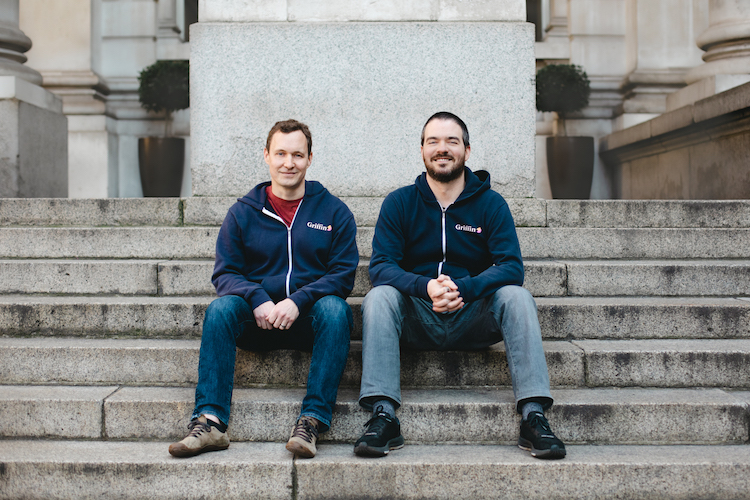Founded by former Silicon Valley engineers, U.K.-based Griffin Bank, an API-driven banking-as-a-service (BaaS) platform, just obtained a banking license, roughly one year after starting the application process. This means it has been given the green light from the U.K.’s financial services regulators, the Prudential Regulation Authority (PRA) and Financial Conduct Authority (FCA), to exit “mobilization” and launch as a fully operational bank.
Griffin got its license roughly a year after starting the application process, in marked contrast to U.K.’s most valuable fintech Revolut, which has yet to secure a banking license despite repeatedly stating its intentions over a span of three years. (No doubt Revolut can take solace in the fact that from 2013 to 2019, only 28% of companies reached the application submission stage, according to the PRA and the FCA.)
Griffin says that it now offers a full-stack platform for fintech companies to offer banking, payments and wealth solutions via automated compliance and an integrated ledger. Griffin is less likely to offer banking accounts directly to consumers, but rather to other businesses that want to offer embedded financial solutions such as savings and safeguarding accounts as well as accounts for holding client money.
Investors are betting on the company achieving its aims. After raising $28.1 million, Griffin just raised another $24 million (£19 million) in an extended Series A round that was led by MassMutual Ventures, NordicNinja and Breega, with participation from existing investors Notion Capital and EQT Ventures. Last June, Griffin raised $13.5 million in a Series A round led by MassMutual Ventures. The outfit has now raised around $52 million since its founding in 2017.
Griffin’s founders David Jarvis and Allen Rohner have plenty of experience to bring to the table. Jarvis was an early engineer at Standard Treasury (acquired by Silicon Valley Bank in 2015), after which he joined Airbnb, where he worked on infrastructure. Rohner founded software startup CircleCI. With Jarvis, he is the co-author of “Learning ClojureScript,” an introductory book to the ClojureScript language, which Griffin uses to build its systems.
The founders highlighted that Griffin’s is a deeply tech-driven product. The U.K. banking world has historically not been a particularly technology-friendly industry, but that changed a few years ago when Open Banking standards were forced on the super-traditional industry, leading to the launch of a swathe of neo-banks such as Starling, Monzo, Tide and others.
Now that fintech companies are here to stay, these and other kinds of companies are leaning into what’s become known as “embedded finance.”
The advantages of embedding financial products into existing non-financial services are becoming clearer. They boost customer lifetime value by putting features in one place, which decreases customer churn. They also create new lines of revenue for companies that previously didn’t offer financial products.
Last year, the banking-as-a-service space was expected to grow 15% each year in the U.S., to be valued at nearly $66 billion by 2030. Among other companies in the space, last year in North America, Treasury Prime secured a $40 million Series C, Synctera raised $15 million and Omnio raised $9.8 million.
Other outfits jumping on the banking-as-a-service bandwagon — and raising money — include M2P (India), Pomelo (Argentina), Cross River (U.S.) and Solaris (Germany), to name a handful.
Co-founder David Jarvis told TechCrunch that Griffin’s customers will be able to have funds pooled into their “own bank” rather than larger banks, many of which have stopped offering these kinds of services. He says the advantage of embedded finance and BaaS is not that consumers “end up with 50 bank cards.”
“We play up the parts of embedded finance that are synergistic to our thesis. We’ll work with a salary finance business that already has a relationship with the employee because they’re doing earned-wage access. And they want to do, let’s say, embedded savings accounts. So they’re leveraging an existing financial relationship to bundle additional financial services in an embedded way. That makes sense. Do we want to help people issue cards for their brand? No.”
He says there is a lot of “historic conflation between core banking system vendors and banking-as-a-service providers,” which means BaaS gets mixed up with other services.
“When people talk about banking as a service, they tend to conflate actual banking with many non-banking services that still tick the box, where it looks like a bank and smells like a bank, but it’s not. This is a space where suddenly our having a bank license versus a neobank that’s not a real bank matters, because we can enable the nested customer to actually earn interest on their funds.”
In addition to the FCA-regulated firms, he noted, there is a wide net of firms that are not regulated by the FCA, but are required by some form of regulator or governing body to hold money in a claimed money account. “So accountants [and] solicitors; a very large part of the property sector; anyone who’s doing anything in managed lettings; anyone who’s doing anything on tenancy deposits — all of that needs to sit in specially marked bank accounts.”
Griffin’s aim, he says, is to pick up as much of that business as possible.































Comment